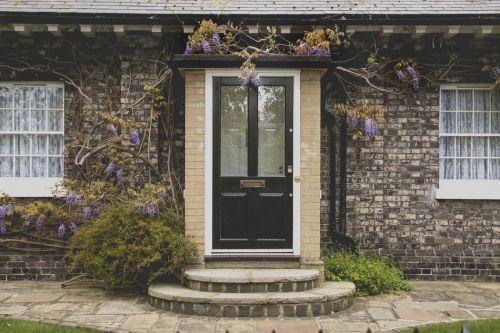Anyone wanting to buy a home know that a down payment is essential to complete their project. However, gathering the necessary funds for this initial payment can be a daunting task for many.
Let's explore the strategies and key considerations involved in securing the money for a down payment.
Is a down payment mandatory?
When you're looking to buy a property like a house or condominium, having a down payment is essential. Lenders usually require a minimum amount based on the type of property you're interested in.
However, what many people don't realize is that the down payment doesn't always have to come from your savings. Depending on your situation and the requirements of the bank, you can explore both traditional and non-traditional sources to secure the necessary funds.
Additionally, there are various alternative options you can consider to help you gather the amount needed for your purchase.

How is the minimum down payment calculated?
Whether you're looking to purchase a condominium, a single-family home, or a duplex, the down payment required varies based on the property's sale price.
For properties priced under $500,000, a minimum down payment of 5% of the sale price is typically required.
If the property's price exceeds $500,000 but is below $1 million, the down payment structure shifts. You'll need to pay 5% for the first $500,000 of the purchase price and 10% for any amount exceeding $500,000.
However, if the property is priced at over $1 million, the down payment increases to 20% of the selling price.
How much should I put down to buy a house?
When purchasing a property, it's essential to meet the minimum down payment requirement based on the property's price range.
For instance, if you're buying a home valued at $500,000 or less, the minimum down payment is typically 5% of the sale price. However, you have the flexibility to contribute more, such as 20% or beyond.
Opting for a larger down payment offers several advantages, including reducing the overall loan amount and potentially eliminating the need for mortgage insurance.

CMHC mortgage insurance
Buyers who make a down payment of less than 20% typically need to obtain a mortgage loan insurance, usually provided by the Canada Mortgage and Housing Corporation (CMHC). Once the down payment surpasses this threshold, mortgage insurance is usually not mandatory.
However, it's important to highlight that individuals who are self-employed or have a low credit score might still be obligated to purchase mortgage insurance even with a higher down payment.
How much does mortgage insurance cost? The cost of mortgage insurance typically ranges between 0.6% and 4.5% of the mortgage amount. The exact percentage varies based on the size of your down payment; the smaller your down payment, the higher the insurance cost.
You have two choices to handle this expense: you can either pay the full amount upfront or include it in your mortgage total. If you opt for the latter, it's important to note that you'll pay interest on this added amount over your loan term.
How can I put together a down payment for my mortgage?
If you're unsure about how to gather the funds necessary to purchase a home, there are several avenues you can explore. Here are a few.
1. Use the Home Buyers' Plan (HBP)
If you're familiar with RRSPs, you're likely aware of the penalties for early withdrawal. However, there's a provision that exempts you from these penalties: the Home Buyers' Plan (HBP). This initiative enables you to withdraw up to $35,000 from your RRSP for use as a down payment or to cover other expenses associated with buying your new home.
Thankfully, there's no tax imposed on this withdrawn amount. You're given a maximum of 15 years to repay this sum into your RRSP without facing any tax consequences. However, it's crucial to ensure you can fulfill this repayment obligation before opting for this avenue. Additionally, it's essential to acknowledge that you'll forfeit any interest earnings you would have accrued if you hadn't withdrawn the funds.
Another critical aspect is adhering to the possession date you've set for the property. The transaction must be notarized by no later than October 1st following the withdrawal to maintain eligibility for the program.
Participation in the program requires meeting the criteria of a first-time homebuyer. Essentially, this denotes that you cannot have resided in a home owned by you or your spouse within the last four years. However, there's an exception for divorced or separated individuals.

Don't have much money in your RRSP?
Another option is to borrow the shortfall and transfer it to your RRSP. Subsequently, you can withdraw this amount to repay the borrowed sum from your bank. Then, you can reimburse the same amount to your RRSP. However, to execute this strategy, you must:
-
Keep the borrowed sum in your RRSP for a minimum of 90 days;
-
Take the necessary steps several months beforehand to adhere to the HBP deadlines;
-
File your income tax return.
Regarding the tax return, it's important to note that your RRSP investment may qualify you for a tax refund. While the refund amount varies for everyone, it can still serve as funds for your home purchase.
2. Ask family for help
If this option is feasible for you, consider yourself fortunate. While it can be challenging to request financial assistance from someone close to you, it's worth noting that some parents are opting to distribute a portion of their inheritance to their children while they're still alive.
This trend is gaining traction, particularly due to the steep real estate prices in Canada.
3. Raise the money by saving
To raise the necessary down payment, you might opt to tap into your personal savings. However, achieving your target within a reasonable timeframe requires rigorous discipline.
Systematic saving involves consistently allocating a set amount of money each month into a savings account, preferably one with high-interest rates. The Tax-Free Savings Account (TFSA) serves as a valuable savings avenue for short to medium-term objectives. Additionally, the First Home Savings Account (FHSA), a recent federal government initiative, presents another advantageous option.

4. Take advantage of the first-time homebuyer incentive
In addition to the above suggestions, another avenue is to secure a down payment grant from CMHC. The First-Time Homebuyer Incentive offers a participating mortgage loan, wherein the loan amount is provided at either 5% or 10% of the property's value, with the latter percentage typically reserved for new construction properties. This grant can then be utilized for the down payment.
Before proceeding, it's crucial to address an important aspect regarding this financing source: repayment considerations.
If you've obtained a 5% loan, the repayment amount will be equivalent to 5% of your home's value. It's worth noting that the repayment sum may surpass the initial borrowing amount, particularly if the property's value appreciates over time. Repayment occurs either upon the sale of the home or 25-years post-purchase if applicable.
To qualify for this program, you must meet several eligibility criteria. These include being classified as a first-time homebuyer, earning an annual income of $120,000 or less, and borrowing no more than four times your qualifying income.
5. Benefit from a gift of equity
Buying a home from a close relative can sometimes be facilitated with no money, thanks to what's called a "gift of equity", which can be utilized as a down payment.
For instance, if the property's appraised value is $275,000, but you're purchasing it from your relative for $200,000, the gift of equity amounts to $75,000. Don't forget that it's essential to work alongside a professional appraiser to accurately determine the property's true market value.
Are you looking for a mortgage?
XpertSource.com can help you in your efforts to find a mortgage broker. By telling us about your project, we will refer you to top-rated experts, free of charge! Simply fill out the form (it only takes 2 minutes) and you will be put in contact with the right experts.

